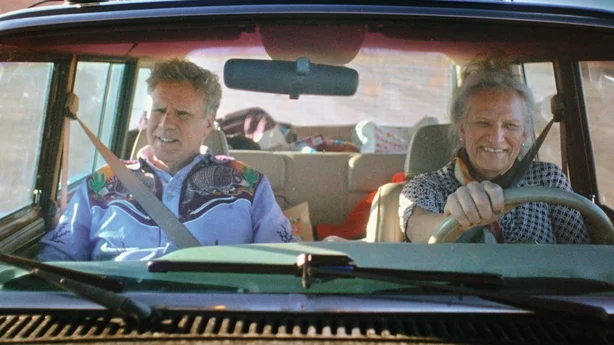Dec 24, 2024
Oct 09,2024
In 2014, Time magazine published a story titled The Transgender Tipping Point, writes Niall Richardson.
It argued that trans representation in contemporary media had become so plentiful that it was helping western culture to evolve in its views of gender.
There have indeed been many well-intentioned fiction films in recent years which have represented characters in the process of gender transition, including The Danish Girl (2015) and A Fantastic Woman (2017). While these films have attempted to challenge earlier stereotypes of trans people as bathroom predators and psychopaths, many of them have inadvertently reinforced other prejudices held about trans people.
Such films have utilised narrative motifs such as the "trans reveal" (where the character's revelation of their trans-ness is a shock in the narrative), the "trapped in the wrong body" lament (in which gender-confirmation surgery is their ultimate goal) and the "isolated exhibit" trope (where they are alone and abandoned by friends and family, treated not unlike a freak show exhibit). In doing so, I believe many of these recent films have furthered contemporary misunderstandings – and even heightened transphobia.
The new Netflix documentary Will & Harper is a touching road movie and a celebration of friendship. It follows actor Will Ferrell as he embarks on a road trip from New York to LA with his longtime scriptwriter friend Harper Steele, who is transitioning at the age of 61. At its core, the film is obviously determined to challenge many of the tropes and prejudices that have underpinned previous films about trans people.
For example, Steele tells Ferrell about her transition in a casual, friendly email, rather than a dramatic reveal. She is relaxed about discussions of potential surgical interventions and, most importantly, is shown to be supported by family and her longtime best friend, Ferrell.
In recent years, there has been a wave of anti-trans bills across the US, all of which frame transness as a contemporary "ideology" that is a threat to women and children’s safety and wellbeing. In response to this, Will & Harper suggests that, far from being a threat, trans people are victims of these laws.

The importance of allyship
As the friends venture across the most politically conservative states of the US, the film shows the very real danger that trans women can encounter during everyday social activities that most cisgender people take for granted.
While a genuine threat to Steele’s safety is unlikely, given that everything is being recorded, there are sequences which detail the finely tuned, low-level transphobia she encounters. In many ways, this is more powerful than explicit violence, as viewers cannot help but imagine what could have happened had Steele not had the protection of the camera lens.
In one scene, she stops in an Oklahoma bar (where Confederate flags and "f**k Biden" posters adorn the walls) and encounters subtle hostility. That is, until her famous friend Will Ferrell joins her for a drink. Once everyday people have someone like the ever-popular Ferrell to show them that trans people are not terrifying monsters, they change their perspective.
If there seems to be one lesson offered by Will & Harper, it is that trans people – now more than ever before – need the support of their cis allies.
Watch: Will Ferrell and Harper Steele talk to Seth Meyers
One of the most touching elements of the film is that Will & Harper is as much about stressing the importance of allyship as it is an exploration of a person’s transition.
Indeed, the very fact that Ferrell is named first in the title indicates where the documentary’s focus lies. Known for his roles as comedic, highly likeable, everyman types, Ferrell explains that he is not only anxious about his friend’s transition but also worried about asking inappropriate questions or saying the wrong thing. In doing so, Will & Harper is one of the first mainstream examinations of the positions a cis friend must occupy to be a trans ally.
The film shows that there are two coming outs required: of the trans person and their ally. However, Will & Harper demonstrates that at times allies will all, like Ferrell, make mistakes. One poignant scene in a restaurant in Amarillo, Texas shows that Ferrell has inadvertently drawn more negative attention to Steele, and his attempt at helping a situation has backfired.
While previous films have tried to help cis viewers to understand, and sympathise with, the transition of a trans character, Will & Harper moves one stage further to suggest that sympathy may no longer be sufficient. In the advent of the November 2024 US election, and a potential change in presidential office, the need for street-level allyship will only become more important.
Will & Harper is now streaming on Netflix.
About The Author: Niall Richardson is a Senior Lecturer in Gender and Media at the University of Sussex. This article originally appeared in The Conversation.